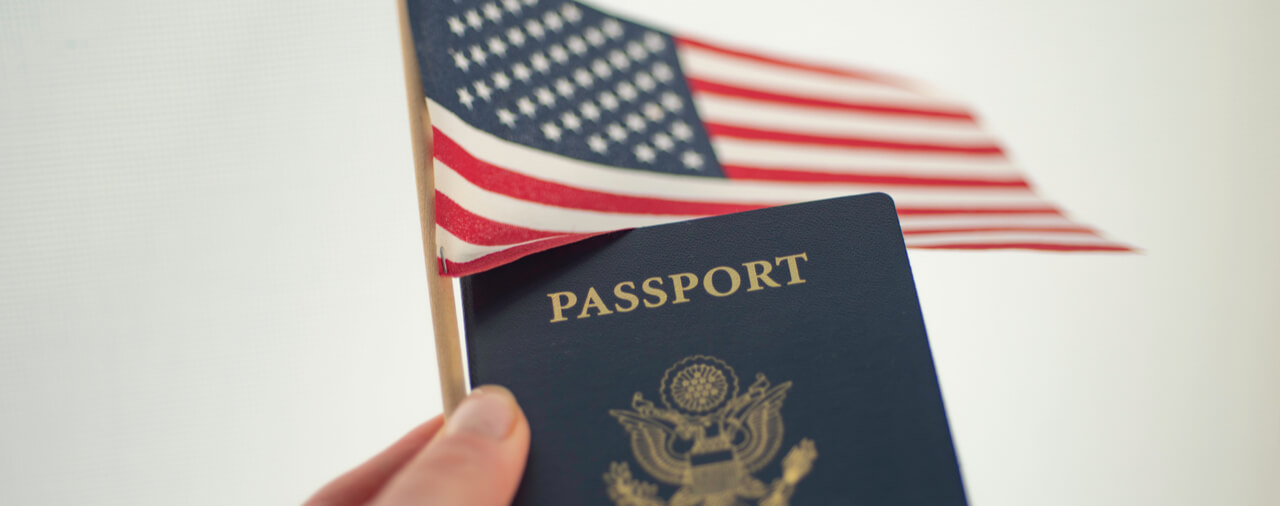
US Passport
The continuous residence and physical presence requirements can be a point of confusion for many permanent residents (green card holders) when applying for U.S. citizenship through naturalization. If you would an easier way to determine if you meet this requirements, contact our office.
CONTINUOUS RESIDENCE EXPLAINED
Continuous residence means that the applicant has maintained residence within the United States for a specified period of time. Generally, you must have 5 years of continuous residence in the U.S. to become eligible for naturalized citizenship. However, if you are married to a U.S. citizen, the requirement is 3 years of continuous residence (while married to the U.S. citizen spouse). There’s an exception if the spouse is a battered spouse.Travel outside the United States can disrupt your continuous residence. You should avoid any trips abroad of 6 months or longer. For the purposes of naturalization:
A trip abroad that is less than 6 months will not disrupt continuous residence.
A trip of more than 6 months but less than one year is presumed to break your continuous residence.
A trip 12 months or longer will definitely break your continuous residence.
An absence between 6 months and one year is presumed to disrupt the continuity of residence. That’s why many permanent residents limit their individual trips outside the United States to 1-5 months at a time. If you travel for over 6 months (but less than a year) at one time, USCIS will automatically presume that you've broken your continuous residence requirement for the purposes of naturalization.
Overcoming a Presumption That You Disrupted Continuous Residency
It is possible to overcome this presumption and successfully apply for naturalization. However, it's a high bar. You will need to provide evidence to establish that you did not disrupt your residence and continued to maintain strong ties in the United States. According to USCIS, the evidence may include, but is not limited to, documentation that during the absence:You did not terminate your employment in the United States or obtain employment while abroad.
Your immediate family remained in the United States.
You retained full access to your United States abode.
If you have an absence of greater than six months and want to apply for naturalization, consult with an immigration lawyer first. A legal professional can properly analyze your specific situation and advise you how to proceed.
Absence of One Year or More
An absence from the United States for a continuous period of one year or more (365 days or more) during the period for which continuous residence is required will break the continuity of residence. This applies whether the absence takes place prior to or after filing the naturalization application. Generally, this is true even if you have a reentry permit. The reentry permit may allow you to reenter the U.S. as a permanent resident after an absence of one year, but none of the time you were in the United States before you left the country counts towards your time in continuous residence. Assuming your absence was less than two years, the last 364 days of your time out of the country counts toward the continuous residence requirement.PHYSICAL PRESENCE EXPLAINED
Physical presence means that the applicant has been physically present within the United States for a specified period of time over the previous 5 years. Generally, you must be have 30 months of physical presence in the U.S. you become eligible for naturalized citizenship. However, if you are married to a U.S. citizen over a 3-year period, the requirement is 18 months of physical presence (while married to the U.S. citizen spouse).
Physical presence is a cumulative requirement; so you must combine each day that you were outside the United States. If you have been absent from the U.S. too long, you won't be eligible to naturalize. To resolve this problem, remain in the United States. After a few months months, recalculate your time outside the U.S.
There are special provisions in the law that exempt members of the U.S. armed forces, certain business travelers, religious workers, government employees, and researchers for a U.S. research agency, from the physical presence requirement. Review the USCIS Policy Manual for more information about the physical presence requirement.

